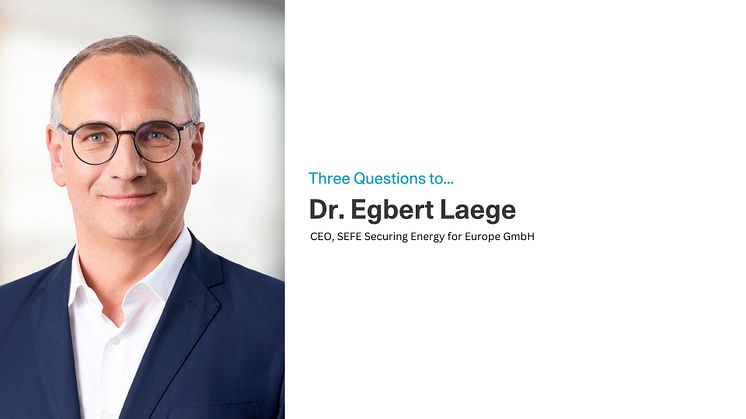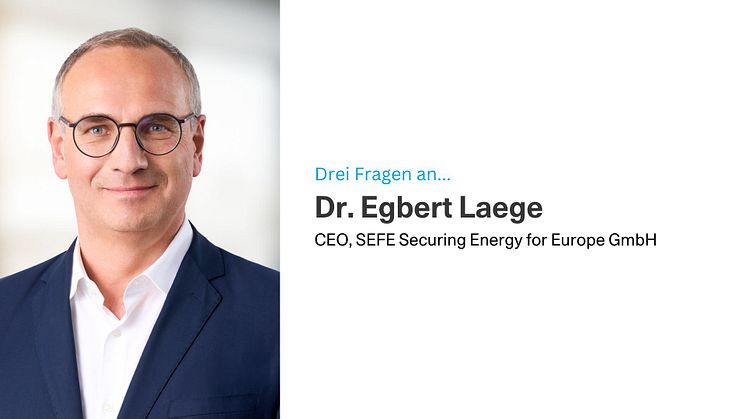
Copyright: SEFE
News -
Three Questions to Dr Egbert Laege, SEFE
-
Our mission and our mandate is to ensure a secure energy supply in Germany and Europe. Accordingly, we have rapidly diversified our portfolio to include both pipeline natural gas and LNG from different regions and suppliers. At the same time, SEFE is investing in infrastructure in Germany to transport and store energy. This means that SEFE covers the entire energy value chain and contributes to strengthening the security of supply in Germany and Europe.
-
What are the biggest challenges SEFE is currently facing in terms of climate protection?
Without hydrogen and clean molecules in sufficient quantities and at competitive prices, it will not be possible to transform German and European industry and achieve climate neutrality by mid-century. The momentum created by the decision in favor of the core network must be maintained and expanded. The entire industry is called upon to ensure the hydrogen market ramp-up in Germany: networks, storage facilities and terminals must be built, customers acquired and hydrogen produced or imported. At the same time, a market design must be developed and a regulatory framework created to make investments in the switch to hydrogen attractive for companies. Coordinating this entire process together with all players in politics and industry is the biggest challenge.
-
What role does hydrogen play for your company?
SEFE is one of the few companies that can cover the entire hydrogen value chain – with 50,000 end customers, a customer portfolio of 200 TWh/year and our existing gas infrastructure such as networks and storage. In addition, we rely on partnerships in the areas of shipping, reconversion and production. These partnerships are essential to reduce investment risk and better coordinate the development of the entire value chain. With our projects, we want to procure the most affordable hydrogen internationally for our customers in Germany and Europe. This is the only way to ensure competitiveness in the transformation and strengthen the industrial base.
In addition to procurement, we are also investing in our infrastructure in Germany. Part of our 4,200-kilometer pipeline network will be repurposed for hydrogen transport by 2025 as part of the Flow project, through our subsidiary GASCADE. SEFE Storage is developing a large-scale hydrogen storage facility in Jemgum with a capacity of over 350 gigawatt hours in the first phase of construction starting in 2032.

